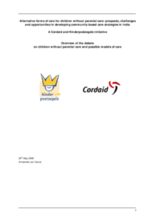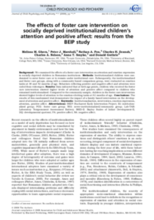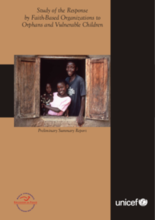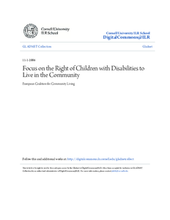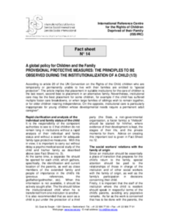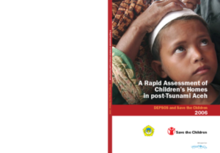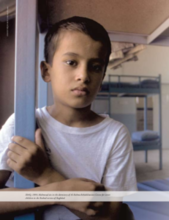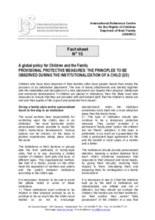Displaying 711 - 720 of 772
A website that contains statistical information on children in 27 countries across Central and Eastern Europe. The site contains relevant child protection indicators, including the number of children in institutional care.
Detailed examination of debate over institutional and alternative care methods for children without parental care. Includes comprehensive framework for collective action.
The study examined the effects of a foster care intervention on attention and emotion expression in socially deprived children in Romanian institutions
A study that looks at the response of faith-based organizations in Kenya, Malawi, Mozambique, Namibia, Swaziland, and Uganda. The report contains statistical information, and details positive care practices to build on, and negative examples to avoid.
Advocates for the right of children with disabilities to live in the community. Provides recommendations on how to ensure a successful transition from institutional to community-based care. Focuses on the importance of family support and the right to education.
A brief 2-page overview of what steps should be taken if and when a social worker or other community worker admits a child to a residential institution.
Examines institutional and family care in post-Tsunami Indonesia. Includes situational analysis, key issues, and recommendations.
This is a chapter from the United Nations Secretary-General’s Study on Violence Against Children that specifically explores the factors contributing to violence against children in institutional care and justice institutions. This chapter includes sections on the sources of violence against children in institutional care, the impact of institutional care on children’s health and development, and the populations of children most likely to become institutionalized.
A brief 2-page overview of appropriate residential institution characteristics. Includes information on staffing, and the optimum size of each family-like unit.
Results of a survey examining the quality of institutional care in Sri Lanka. Highlights gaps in existing policies and procedures.

